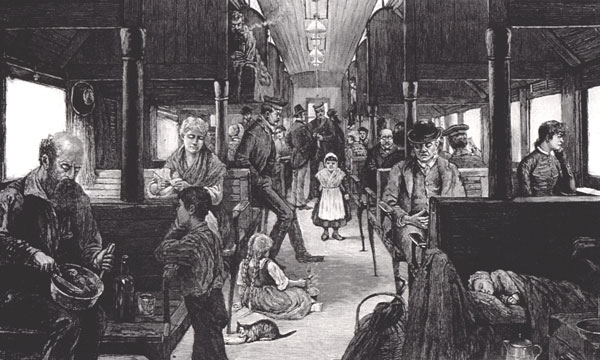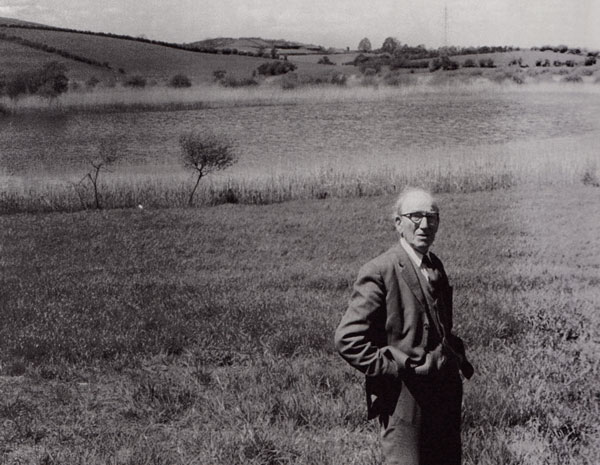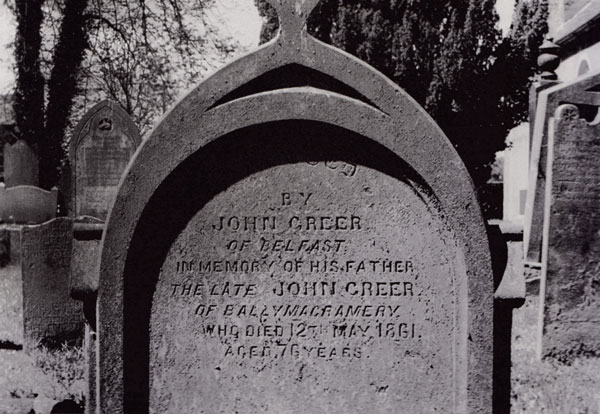![]()
To enlarge, click
on below image
 Train served as main method of transportation around
the U.S. in the 1870s.
Train served as main method of transportation around
the U.S. in the 1870s.
![]()
To enlarge, click
on below image
 Ballymacramery,
Ireland,
Ballymacramery,
Ireland,
May 1979
John Greer II (Uncle Jack) in front of Lake Greer, our family named
lake. The lake was just behind Grandmother's house which was pulled
down in the 1970s. John Greer II was the nephew of Ellen Greer, my grandmother.
He is the son of John Greer, Ellen's younger brother.
![]()
To enlarge, click
on below image
 The
headstone of John Greer I in Ballymacramery, Ireland.
The
headstone of John Greer I in Ballymacramery, Ireland.
Grandfather settled with his lovely, blue-eyed Irish bride in Indianola, Nebraska in about 1886. Their first two children died at birth, nor did their third child, Willie, survive. (Perhaps my name, William, relates back to Willie, as well as to our earlier Irish ancestor William Dorman.) Grandmother was later to have two other children: Howard, born in 1888, and George, born in 1893; both survived.
In Ellen’s eyes, there were two kinds of Irish; she was a Protestant from Northern Ireland, and she referred to the Catholics of Southern Ireland as “Blarney” Irish, those that kissed the Blarney Stone. From this it is clear that the current IRA conflict in Ireland has deep, deep roots. The Protestants and the Catholics just didn’t take to one another.
But one thing all the Irish had in common was the jig. Even though his mother died when Daddy was only a few years old, somehow he picked up the Irish jig and could do a very creditable few steps. They still dance the jig in Ireland—a delightful custom that has survived, particularly in the region around Belfast.
Before settling in Nebraska, Grandfather had saved a fair sum of money so he bought an interest in a 40-acre farm, a black stallion and some farm equipment. Within the next few years, because of a drought and a recession, he lost his acreage. Then, the stallion died and so he was almost wiped out. Having worked with horses a lot on his Missouri bridge project, he had become a self-taught veterinarian. Eventually, his veterinarian business was to reverse his misfortune and keep him going for the rest of his life. In that business, he would sometimes make good money; in times when hogs had to be vaccinated, some days he could make as much as 200 dollars.
Daddy remembers one time an ailing horse was brought to him. Grandfather had Daddy throw the horse down, twist and hold his neck while Grandfather literally drilled a hole from the outside of the animal’s lower jaw, up through the jaw thereby knocking out an abscessed ingrown tooth. The horse started to perk up the very next day and soon was back in health.
In 1895 Grandfather’s Irish bride died shortly after the stillbirth of her sixth baby. Grandfather never remarried because he could not bear the thought of a second wife possibly slapping one of his children as he had been slapped in his childhood by his foster mother.
Grandfather raised his two remaining sons close to the soil. He recovered some of his property where he maintained a garden and some animals for food. In high school his two boys received an education strong in the classics. His elder son, Howard, left home to work in the New Frontier of that time, the territory of Oklahoma. His younger 23-year-old son, George (my father), was still living at home when Grandfather died of a heart attack at the age of 71, a very traumatic experience for Father.
Home | Grandfather |
Father | Myself | Main
Index

